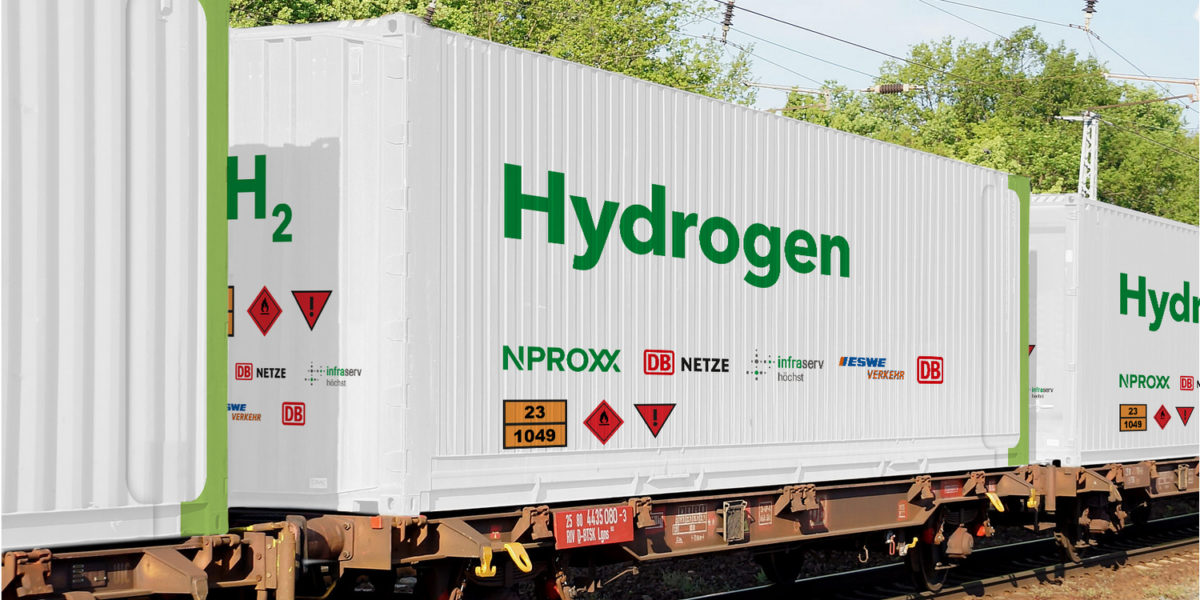From pv magazine Germany.
Fuel cell trains are to be put on rails all over Germany in the next few years – particularly in the regions of Hesse and Lower Saxony. But how should the hydrogen get to the trains' filling stations? The best way to do this is by rail, says the State Energy Agency of Hesse. It commissioned DB Energie, the energy supplier of German national rail operator Deutsche Bahn, to investigate how this can be achieved in terms of technical, operational and legal feasibility. This question was examined based on an existing hydrogen source in the Höchst industrial park in Frankfurt am Main on two specific routes in the Rhine-Main area.
The DB Energie experts concluded that it was basically feasible to supply the hydrogen refueling infrastructure with hydrogen by rail. Compared to the road, they see many advantages, such as precise planning of transport times, the high level of reliability and safety, the possibility of transporting large quantities and the relief of road traffic in metropolitan areas. There is nothing from a technical and legal point of view speaking against transport by rail. “We at DB Energie are taking this study as an opportunity to push ahead with the development of hydrogen logistics by rail,” explained DB Energie managing director Torsten Schein.
However, there are as yet no hydrogen transport containers that are approved for train traffic – only for road traffic. Since the requirements are very similar, it is to be expected that certification for use on rails could be obtained within six to eight months, the authors wrote.
The experts at DB Energie recommended that a separate study should analyze whether transport by rail can be more economical than transport by road. On the two routes examined, the train traffic performed slightly worse. However, general statements could not be derived from this.
“Road transport is not a really sustainable solution,” stated Karsten McGovern, managing director of the State Energy Agency Hessen. “That's why we see rail transport as trend-setting, especially when fuel cell trains continue to be refueled in the future, such as on the Taunusbahn network in Hesse. The study commissioned by us shows that and how this can be achieved with the railway. ”
Popular content
This content is protected by copyright and may not be reused. If you want to cooperate with us and would like to reuse some of our content, please contact: editors@pv-magazine.com.


By submitting this form you agree to pv magazine using your data for the purposes of publishing your comment.
Your personal data will only be disclosed or otherwise transmitted to third parties for the purposes of spam filtering or if this is necessary for technical maintenance of the website. Any other transfer to third parties will not take place unless this is justified on the basis of applicable data protection regulations or if pv magazine is legally obliged to do so.
You may revoke this consent at any time with effect for the future, in which case your personal data will be deleted immediately. Otherwise, your data will be deleted if pv magazine has processed your request or the purpose of data storage is fulfilled.
Further information on data privacy can be found in our Data Protection Policy.